Self-determination is a human right!
We stand in solidarity with the feminist forces and the protesters in Iran! Human rights are universal – for everyone, always and everywhere!
Berlin, October 2022. The current uprisings and their brutal suppression by the regime in Iran show impressively how structures of oppression build on one another and how those who have been discriminated against multiple times are always the first to experience violence. This starting point shows why self-determination should be our top priority in order to ensure a life in freedom and dignity for all people.
"We are not afraid, we are all together" or "Jin, Jiyan, Azadi - Woman, Life, Freedom" – these slogans have been echoing through the streets of Iran for almost a month. Following the murder of Mahsa Amini, or Zhina Amini, by security forces, Iranians have been taking to the streets across the country since mid-September, initially to demand clarification and now to protest against the regime as a whole. Zhina Amini, a 22-year-old Kurdish woman, was arrested by the so-called moral and religious police in mid-September because of an allegedly "un-Islamic" outfit, a headgear that had slipped and was beaten in police custody. According to witnesses, she was further abused at the station. She succumbed to her injuries. Let's call this act what it is: state femicide.
In recent weeks, more and more people across Iran have been risking their lives protesting against the oppressive regime of the Islamic Republic, which has been using the most brutal methods against its own population, especially women, minorities such as Kurds and all those who resist, for 43 years. The human rights organization Iran Human Rights based in Oslo suspected on October 12, 2022 that at least 201 people, including 23 children, were killed by state forces during the protests[1]. Across the country, people of all ages and walks of life have joined protests led by women. We are in awe of their courage and strength!
Self-determination is our greatest asset
Let's classify this digression. This is not just about the right not to wear hijab. This is about the freedom of being - the right to decide about ourselves and our own bodies. It is about standing up against multiple discrimination and enforcing our right to a self-determined life. The legal veil in Iran must be seen for what it is: a totalitarian tool of oppression against women and girls. After the revolution, the compulsory veil was declared and, according to Mina Khani, women were “the first social group whose fundamental rights were questioned immediately after the revolution[2]. "
At the same time, we have to take an intersectional view of multiple discrimination and its consequences. Take the case of Zhina Amini: portraying her death solely as the outgrowth of a deeply patriarchal and sexist system does not paint a full picture. Zhina Amini was murdered not only because she was a woman. She is also a member of a minority, namely the Kurds. The Islamic rule of the mullahs' oppressive regime has built on ethnic, religious and political divisions, further stigmatizing and criminalizing oppressed minorities such as Kurds and Baha'is in the process. The 1979 revolution transformed an autocratic monarchy into a clerical and fascist state under the control of Ayatollah Khomeini, who had returned from France, and intensified repression. One of Khomeini's first official acts was to ban all Kurdish parties and to declare the Kurdish struggle an anti-Islamic conspiracy. In the Iranian state, Kurds are not even allowed to give their children Kurdish or Kurdish-sounding names.
During the protests in Iran, too, the harshest violence was used against all Iranians, but especially against the country's ethnic minorities such as Kurds at demonstrations in the occupied Kurdish areas. For decades, the Iranian regime has been carrying out military actions and bombings in Kurdish areas - including outside Iranian territory - most recently in late September in autonomous Kurdish areas in neighboring Iraq. This persistent and systemic repression of Iran's Kurdish minority thus suggests that Zhina Amini's Kurdish identity played a part in the state's repression hitting her so hard. So Zhina Amini was not only a victim of the Iranian regime's barbaric rule against women, but also the repressive rule against minorities. The ruling regime has been oppressing ethnic minorities in various provinces of Iran for 43 years.
Thus, the intersectional view also shows us: whether a woman wears a headscarf or not – that should not be the point. In the Iranian context, however, it is so, because the obligatory hijab is not the culture of the Iranian people or Iranian women, but the culture of the Islamic Republic. This makes it the most important symbol of the religious dictatorship, which sees women's bodies as a political platform on which to write their ideology. But outsourcing the accusation of state control over women's bodies to Iran is belittling. Of course, in Iran or Afghanistan, where headscarves are compulsory by the state, women's choices are not free. The state decides about their bodies, their freedom, restricts their self-determination. Because these protests are not just about the headscarf requirement - they are about at least 43 years of systemic oppression of a system that curtails the rights of political opponents, women, ethnic and religious minorities.
But while women in Iran are fighting for their right to self-determination – whether, when and how they can express themselves freely – heated debates about the right to sexual and reproductive self-determination of all genders have been going on around the world for decades, both on a social and political level. The restrictions on abortions in the USA, Poland and also here in Germany show us that women's right to self-determination is being restricted worldwide and that we have to fight these struggles globally. To think that the struggle for emancipation and self-determination is a phenomenon of the Global South - that is misguided.
Be it compulsory headscarves or a headscarf ban, the stigmatization of abortions or the instrumentalization of these debates by the right - they all curtail women's right to self-determination. No country in the world should be allowed to interfere, have a say or have a say in how a person, especially a woman, wants to dress.
As conservative and religious forces gain power around the world, the rights of women and members of the LGBTQIA+ community, particularly those experiencing multiple discrimination, are the first to be taken back. We must therefore be vigilant, lead our struggles together and think and organize them in an anti-racist manner, because "I am not free while another woman is unfree, even if her bonds are very different from mine." (Audre Lorde).
Solidarity requires active and consistent measures
According to the federal government, Germany's foreign policy is based on the defense of human rights and is feminist - with this promise Annalena Baerbock started. According to the Federal Foreign Office, this includes recognizing gender equality as a "prerequisite for sustainable peace and security in the world". And yet German foreign policy in relation to the development of the current situation in Iran does not live up to its own claims. We ask ourselves: what exactly should this feminist foreign policy look like? Who does it stand for, and who does it not stand for?
The Foreign Minister tweeted "if women are not safe, no society in the world is safe" and the Chancellor said before the United Nations: "And at the same time we have a duty to respect and defend human rights everywhere and at all times". We welcome this approach by the federal government and the opposition - and we demand that this approach be implemented and considered in all political measures. But that also includes assessing German negotiations with countries that are supposed to supply us with fossil fuels, taking into account their respective human rights situation. We cannot forget the universally applicable human rights in order to ensure Germany's supply of fossil energy - no matter where, no matter when. But human rights, and the defense of them, must not be selectively distributed or denied in view of realpolitik dependencies. Just a few weeks ago, the student Salma al-Shehab was sentenced to 34 years in prison in Saudi Arabia for sharing tweets from activists and women's rights activists. How can this federal government defend human rights in one place if you don't do it elsewhere?
Annalena Baerbock summoned the Iranian ambassador to Berlin and apparently the federal government, in cooperation with other European countries, has collected proposals to tighten sanctions against the Iranian regime. We very much welcome the approaches - however, these measures can only be decided at the meeting of the EU foreign ministers on October 16 at the earliest - that is much too late! People are being murdered by the regime in Iran on a daily basis. The federal government must act now! At the same time, although sanctions have a symbolic power, we know from political experience that these will primarily affect the Iranian people, but not the country's power elites. As Iran's most important European trading partner, Germany would be in a position to exert political pressure. And yet German foreign policy towards Iran or other dictatorships is too often guided by short-sighted political considerations or shaped by economic interests. It cannot be that German foreign policy only deals with Iran with the nuclear negotiations. Sitting at the table with Iranian delegations without mentioning the human rights situation there is misguided politics and contributes to perpetuating unequal power relations. We are currently seeing the consequences of such an attitude elsewhere - carried out on the backs of the Ukrainian and Russian civilian population.
We demand to immediately support the feminist & democratic movements in Iran with concrete political steps!
In Germany we call on the federal government:
- We demand that German foreign policy not only describes itself as feminist, but also acts feministly.
- We demand that the German government recognize the murder of Zhina Amini as the femicide it was.
- At the same time, we call on the federal government to put its economic and real political interests aside and to condemn the ongoing state-run femicides in the strongest possible terms. This includes protecting the two LGBTQIA+ activists* Sareh (Zahra) Sedighi and Elham Choobdar, who fight for the rights of the LGBTQIA+ community in Iran. Both militant activists were sentenced to death in early September - we call on the German government to include the release of Sareh and Elham as a condition of their negotiations with Iran.
- We demand sanctions that hit the political elite, the regime and those responsible, such as the so-called Revolutionary Guards and the moral police, and not, as before, the population.
- In addition, we call for unbureaucratic access to asylum law, easier entry regulations and better access to residence permits for Iranians in Germany - especially people who are exposed to multiple discrimination such as Kurds, Baha'is and other ethnic minorities in Iran, members of the LGBTQIA+ community and politically persecuted people – they deserve our unconditional support.
- We demand an immediate, uniform freeze on deportations for Iran at the federal level, as demanded by the Federal Commissioner for Migration, Refugees and Integration. We are also calling for a long-term reassessment of the situation by the German authorities. In this context, we welcome the initiative of the federal states such as Lower Saxony, Mecklenburg-Western Pomerania and North Rhine-Westphalia to no longer deport people to Iran.
- We call for better protections for Iranian exiles and members of the Iranian diaspora, particularly those facing multiple discrimination, and for their expertise to be incorporated into the political processes dealing with Iran.
- We call for a halt to the nuclear negotiations with Iran – calling for sanctions but resuming talks on a nuclear deal is a foreign policy contradiction that gives legitimacy to a regime that abuses human rights.
- We demand tough action by the federal government against the political propaganda and the ideological-fundamentalist ideas that are being spread in Germany by pro-Iranian institutions controlled by the regime. Its contents are in contrast to the essential principles of our free democratic basic order.
- Last but not least, we call not only on the current federal government, but on ALL democratic parties to show solidarity with the feminist and democratic movements in ALL countries of the world in the long term and with active political measures, and not to instrumentalize their struggles as a calculation for their own political ideas.
On an international and international law level, we demand:
- We call for an independent UN mechanism to investigate and document human rights abuses in Iran and hold those responsible accountable.
- We call on the UN Human Rights Council to condemn the Iranian government's violent crackdown on the protesters and hold them accountable for the repression and murder of protesters.
- At both EU and UN level, we call on the Federal Government and the Foreign Minister to use all means and means to set up an independent UN mechanism to investigate human rights violations.
- We call for a special council of the European Union to be convened on the current situation in Iran.
- We call on international human rights organizations to take a stand on the events in Iran, to urge the release of all detained protesters and to demand that the Iranian authorities ensure their safety and health in detention.
- We call on ALL feminist groups and organizations to support the rights of Iranian demonstrators and their demands through protests, peaceful gatherings, statements and any other form of solidarity.
We call on the federal government not only to continue to communicate indignation, but to exert real political pressure to stand up for the rights of those affected and not to look on in silence. We demand action, not just empty words.
If this federal government is committed to a feminist foreign policy, then it is important to put this concept into practice. Germany should unequivocally side with women and the democratic opposition in Iran instead of sticking to an undeterred policy of appeasement. Because if the feminist and democratic protests in Iran are not a case for a feminist foreign policy - then there is no feminist foreign policy for us.
Against the double standard of Western and Eurocentric feminism!
The systematic oppression of women and minorities, which restricts their freedom, is not "normal" for the people in Iran - it is the result of an oppressive regime. Patriarchal violence in Iran has been going on for decades. It is not secret, it is not hidden - it is official, institutional and the integral foundation of the Iranian system of rule. The resistance of the Iranian people shows that the urge for freedom is not "Western". As Gilda Sahebi so rightly puts it: "The women in Iran show us: We don't need you to understand what human rights are".[3] One of the world's largest protest movements of the last decades emanates from the Middle East - feminism, emancipation and self-determination are not "Western values", but universal!
If we commit ourselves to feminist foreign policy, then we must also do it in an intersectional, anti-racist and goal-oriented way. Then we have to name the patriarchal violence of every oppressive system as well. We cannot point the finger at Russia or Hungary and condemn anti-LGBTQIA+ laws while looking the other way in Iran or Saudi Arabia. The debate about feminist foreign policy and the protests in Iran must not be conducted in a Eurocentric manner and with the same old colonial glasses. Feminist foreign policy is only truly feminist when conceived free of colonial and Eurocentric narratives. That means that in this case not only white, privileged women should be considered. People of color, people with disabilities, trans people, queer people need to be included.
But when migrant, refugee or Muslim women are a topic in German feminism debates, then mostly as an object to talk about. They are rarely invited to articulate their needs, political interests and feminisms themselves. But we have to involve people and listen to them. Feminist foreign policy - that is only possible with feminist action. The women in Iran are showing us what that means right now.
Here, too, anti-racist glasses are indispensable. Because the oppressed Iranian people will fight for their liberation themselves - not Germany, not Annalena Baerbock's feminist foreign policy, not the so-called West. As the co-founder of postcolonial theory Spivak so aptly put it, the narrative of the supposedly progressive West and the “uncivilized” Other is always negotiated through gender as well. But Iranian women don't needwhite men who save brown women from brown men". The horrible events in Afghanistan last summer showed us that this doesn't work.
We must support the people of Iran in their liberation. We must support exiled Iranians in the current protests outside of Iran. We shouldn't stand in their way, we should make it clear: the right to self-determination and equality policies must be thought through and implemented in an intersectional way, taking into account as many perspectives as possible.
In solidarity with the militant forces in Iran!
Injustice anywhere is injustice everywhere
So let's not look at the situation in Iran and say that this protest is new. Because since the 1979 revolution, women and oppressed minorities in Iran have been fighting against the ruling system. For over 30 years they have stood up for their self-determination - because our rights are a human right. Women's rights are a human right. Our self-determination is a human right. And human rights are universal – for everyone, always and everywhere!
We view current developments in Iran with both shock and awe - shock at a new situation that highlights the Iranian dictatorship's brutal treatment of women and minorities. Awe of the strong, feminist and progressive protests and courage of the oppressed people in Iran. Your right to self-determination is your greatest asset[4]!
At this historic moment in feminist world history, we stand in solidarity and unite with the progressive and feminist forces in Iran!
signatories
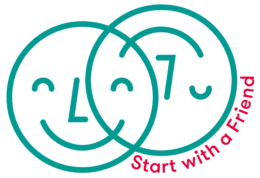
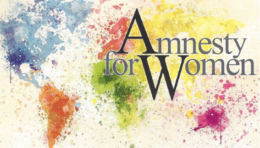
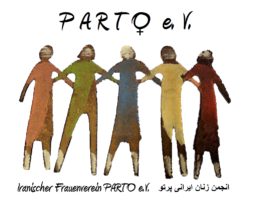


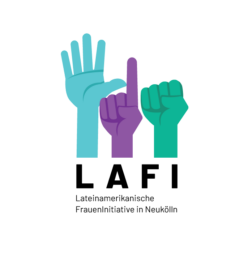
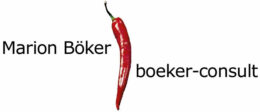


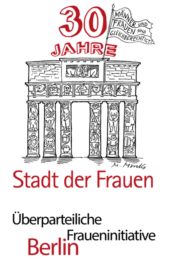



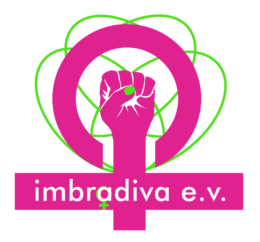
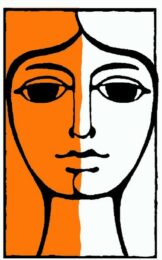




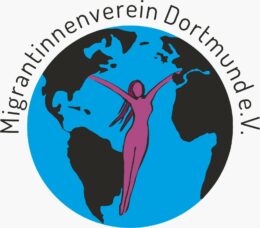





[4] Self-determination is a matter of the heart for DaMigra and the content of our annual conference 2022 under the title "My body belongs to me - from head to toe, whether in a mini skirt or with a headscarf". More on this here.
[3] Gilda Sahebi on October 12.10.2022th, 2022: https://heimatkunde.boell.de/de/10/12/XNUMX/was-im-iran-geschieht-ist-feministische-weltgeschichte
[2] Mina Khani on Twitter 23.09.2022/2/1573265204820967428, https://twitter.com/khaniXNUMXmina/status/XNUMX
[1] Iran Human Rights Live Scores; https://iranhr.net/en/live/
DaMigra e. DaMigra follows the approach of anti-racist feminism.
Reports
Umbrella organization
Between discrimination and exploitation: protection and health also for migrant women in the workplace!
April 28 marks World Day for Safety and Health at Work, an initiative of the United Nations International Labor Organization (ILO). But for women with...
WOMEN RAIS.ED
Umbrella organization
Racism and sexist discrimination must be fought EVERY DAY across society
Berlin, March 20.03.2024, 21. On March XNUMXst, the International Day for the Elimination of Racial Discrimination, there are numerous projects, events and offers on the topic of racism. Politicians and…
Brave together
Migrant womenMarch 2023
About the courage to carry on – a film by DaMigra eV
On March 13.03.2023, XNUMX, we will present a documentary short film in the context of our Germany-wide campaign “Migrant Women March”. Two women with a refugee or migration history share their personal stories by...
Appointments
WOMEN RAIS.ED
Online, 29 April 2024
Trialogue Israel-Palestine with Jouanna Hassoun and Shai Hoffmann
Dear interested parties, DaMigra e. V. and the anti-racism project women rais.ed invites you together with the Multicultural Forum and...
Brave together
Leipzig, 29 April 2024
Language café in Leipzig
Dear women, dear volunteers, dear interested parties, DaMigra eV cordially invites you to the language café as part of the “Together MUTig” project...